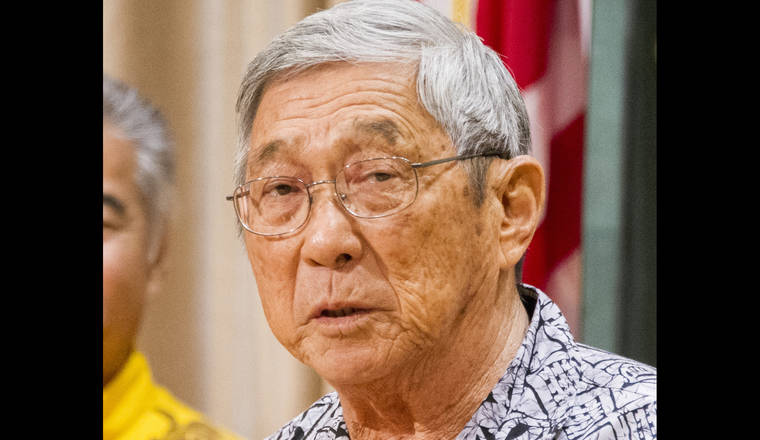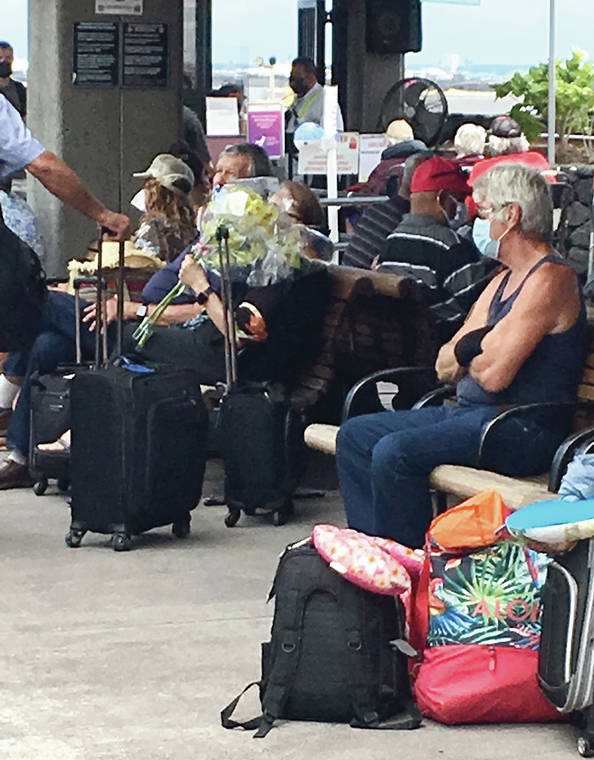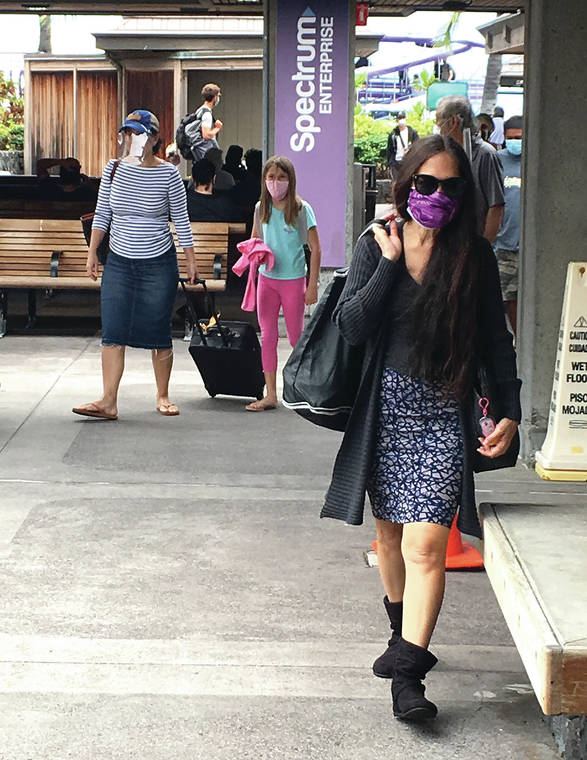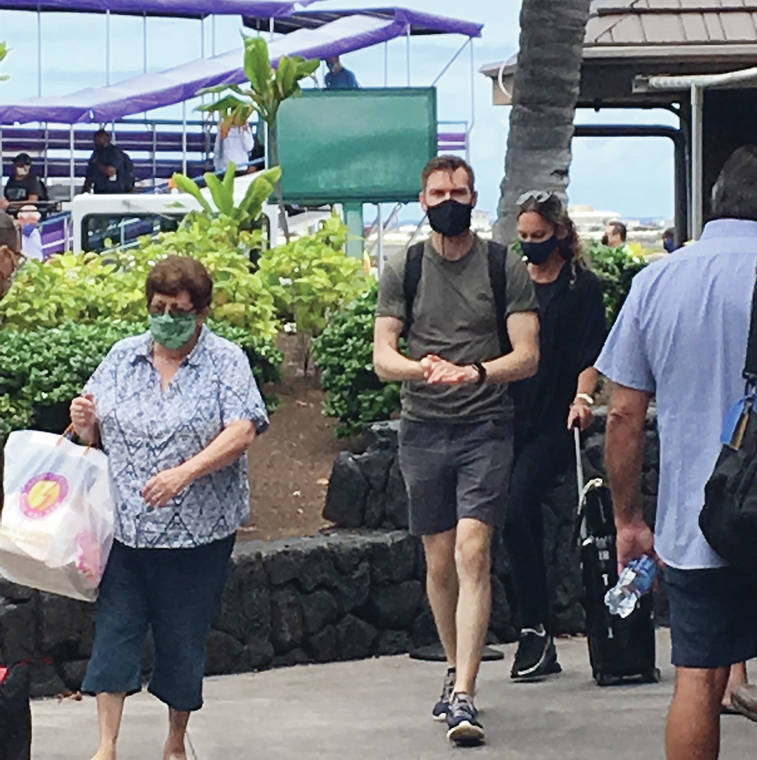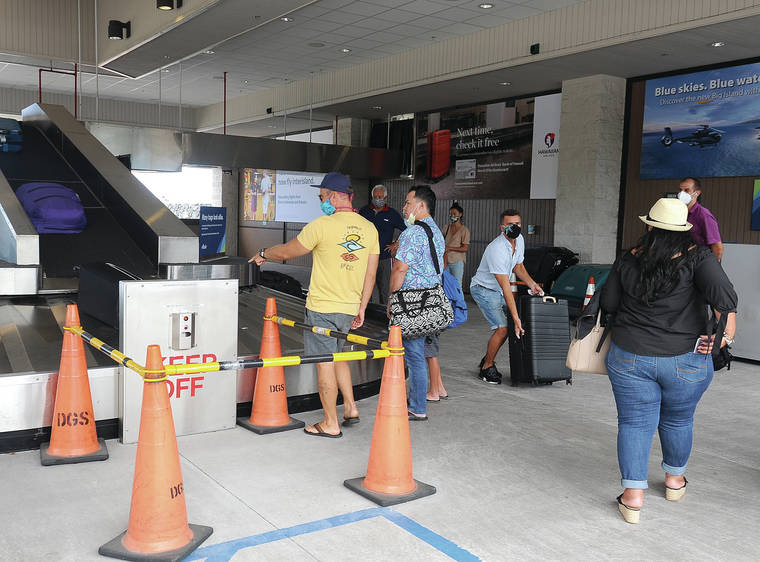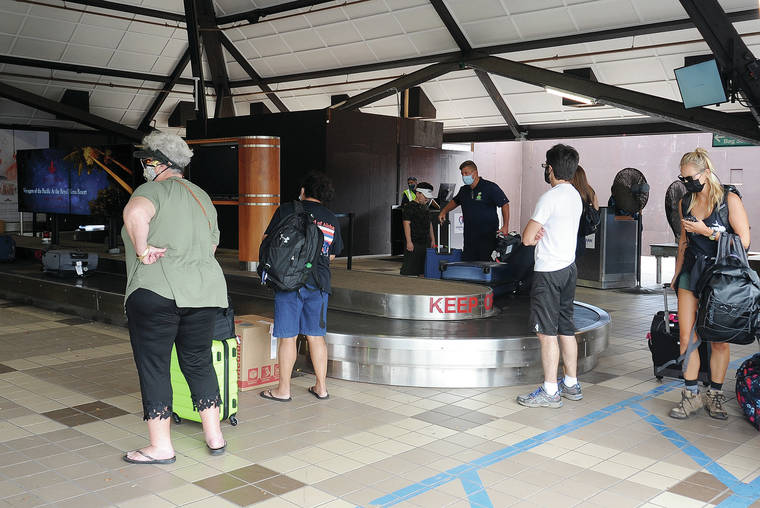Along with the reopening of the state Tuesday to quarantine-free interisland travel, comes the reopening of short term vacation rentals to those not under quarantine.
Mayor Harry Kim on Friday joined two other county mayors allowing STVRs to reopen, but he clarified Tuesday it applies only to renters not under the mandatory 14-day quarantine. His latest emergency rule doesn’t spell it out, but he said there was no need to, as the state law prevails.
“State policy takes precedence,” Kim said. “If you don’t have a residence here, you need to quarantine in a hotel.”
Gov. David Ige’s emergency proclamations have continued to require a 14-day quarantine for all out-of-state travelers coming to or returning to Hawaii. The order, which last week was extended to July 31, states “Persons who require paid or commercial lodging while subject to the mandatory self-quarantine shall designate a hotel or motel as their designated quarantine location.”
An Ige spokeswoman confirmed that order Tuesday, saying the Department of the Attorney General relayed that, “Mayors in all counties can allow short term vacation rentals to open, but short term vacation rentals are not permitted as designated quarantine locations.”
Hawaii County Planning Director Michael Yee said he sent out an email blast Friday night to 5,000 STVR owners and managers, informing them of the relaxed rule. He said he directed them to a FAQ page, https://records.hawaiicounty.gov/weblink/DocView.aspx?dbid=1&id=105137.
“The first phase of reopening has begun with vacation rentals, timeshares and bed and breakfasts to inter-island travelers, local residents and to guests who have completed any mandatory quarantine order,” Yee said. “Rentals may be for short term or long term.”
The rentals had been closed by law statewide since March under Ige’s emergency proclamations, causing a group of rental owners on four islands June 8 to threaten a lawsuit. Since then, all counties except Oahu have allowed them to reopen to those not under quarantine.
An attorney representing the vacation rental owners couldn’t be reached for comment by press-time Tuesday.
Maui County Mayor Mike Victorino and Kauai Mayor Derek Kawakami spelled it out in press releases accompanying their revised rules.
“The governor’s proclamation includes host liability, which means that STVR owners may be subject to enforcement if they rent to individuals who are subject to the 14-day quarantine. (A conviction could include jail time of up to one year and a fine of up to $5,000),” Victorino said in a June 12 press release.
Honolulu Mayor Kirk Caldwell, in a guidance bulletin updated Monday, continued to hold that “short-term rentals may not operate during the term of the Order, and they are not legally recognized places for visitors to lodge or self-quarantine.”
Neighbors of vacation rentals remained on edge Tuesday. Several had concerns about how the county would monitor the rentals to ensure they weren’t being used for quarantines, and one noted that screening at Ellison Onizuka Kona International Airport seemed lax. Screeners, said Stefan Buchta, seemed to merely check that the address was valid via Google maps and dialed the telephone number provided by the traveler, which was generally their cellphone number, to check on them.
“As you can imagine, we neighbors all are very concerned that, now that our residential STVRs operate again, they will put increasing numbers of travelers from high virus count states such as, for example, California or Oregon, directly into the middle of our community, into our local grocery stores, into our restaurants, and onto our neighborhood beaches,” said Buchta, who’s kept close watch over the island’s progress toward registering and regulating the rentals.
“The argument of the vacation rental hosts that their properties in residential areas are safer than hotels during the pandemic doesn’t hold water. Maybe they are safer for tourists who stay in them, but definitely not safer for the communities around them,” he added.








